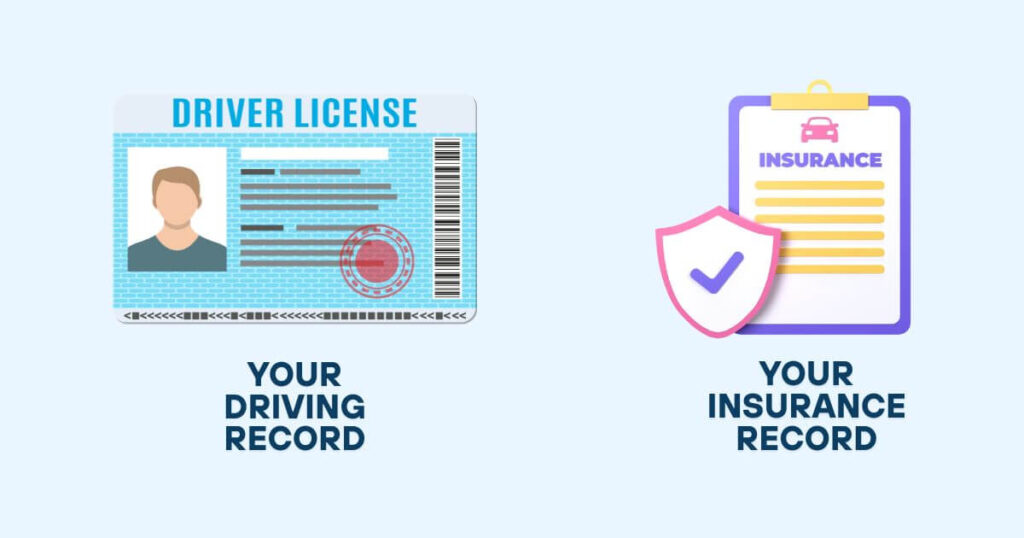Introduction
It’s been five long years since your DUI. You’ve done the work, paid the fines, completed all the requirements, and have maintained a perfectly clean driving record ever since. Now, you’re asking the big question that’s been on your mind: “When will my car insurance rates finally go down?”
You’ve probably heard that the 5-year mark is a major milestone, but what does that actually mean? Is it an automatic switch that flips? Do you need to take any action to make it happen?
In this guide, we’ll break down exactly what happens at the 5-year mark, why it’s so significant, and most importantly, we’ll answer the question: how does a DUI affect insurance rates after 5 years? We’ll also look at the proactive steps you must take to ensure you get the lowest possible car insurance after DUI. Let’s get started.
Why a DUI Makes Your Insurance So Expensive
Let’s quickly cover why your rates went up in the first place. After a DUI conviction, insurance companies reclassify you as a high-risk driver. From their perspective, based on industry data, you represent a higher chance of being involved in a future accident. The primary reason DUI insurance rates are higher is due to the increased risk.
For many, a DUI also means being required to file an SR-22 form with the state. The SR-22 insurance rates tend to be higher since this form automatically flags you as high-risk across the insurance industry, making it difficult to find affordable rates.
The 5-Year Rule for DUIs: What Does It Mean?
So, is the 5th anniversary of your DUI the moment everything magically resets? The answer is a hopeful yes, but it’s not automatic. The 5-year mark is a critical milestone because it’s when many insurance companies may no longer use the DUI to calculate your premium. However, how this works depends on two different “clocks.”
Driving Record vs. Insurance Record: What’s the Difference?

It’s important to understand that your official state driving record is different from your insurance record. Depending on your state’s laws, a DUI may be removed from your public driving record after 3, 5, or even 10 years.
However, insurance companies use comprehensive reports (often referred to as CLUE reports) that may show incidents dating back to a longer period. The key isn’t when it vanishes from your DMV record, but when your insurance company decides to stop penalizing you for it and re-rate insurance policy after DUI.
Understanding the Insurer’s “Lookback Period”
Every insurance company has its internal lookback period. This is the number of years they will “look back” at your driving history to assess risk. This period is often between 3 and 7 years, with 5 years being a very common timeframe.
If your insurer has a 5-year lookback period, then once your DUI is older than that, it should no longer be used as a factor in your premium. This is the moment you’ve been waiting for: getting cheaper insurance after 5 years is finally possible.
Your 4-Step Plan to Lower Your Car Insurance Rate

The most important takeaway is that your insurance company has no incentive to contact you and offer a lower rate. You must be prepared to lower car insurance after DUI and receive the savings you now deserve.
Step 1: Get New Quotes from Other Companies
This is the single most effective action you can take. Your current insurer, who has been charging you high-risk driver insurance rates, may be slow to offer a significant discount. The biggest savings almost always come from getting fresh quotes from other companies that want your new, lower-risk business. At the 5-year mark, you are a much more attractive customer to them.
Step 2: Ask Your Current Insurer for a Rate Review
While searching for new quotes, also consider calling your current provider to discuss your options. Don’t just ask if your rate will go down; you need to be specific about what you’re asking.
- What to Say: “Hello, I’m calling to request a formal re-evaluation of my policy. My DUI incident occurred on [Date], which is now over five years ago. I’ve had a clean driving record since then and would like my premium to be re-rated based on my current low-risk status.”
Step 3: Verify Your SR-22 Requirement Has Ended
If you were required to have an SR-22, you must ensure this requirement is officially over. Contact your state’s DMV or Department of Motor Vehicles to formally confirm that your SR-22 filing period has ended. This removes a major high-risk flag from your car insurance with a DUI on record.
Step 4: Use Your Clean Record as a Bargaining Chip
When speaking with both new and current insurers, use your 5-year clean record as a negotiating tool. Remind them that you’ve been a safe, reliable driver for half a decade. Mention any defensive driving courses you’ve taken—these can also help lower your car insurance after DUI.
4 Other Factors That Affect Your Premium
If you’ve taken the steps above and your rates are still higher than you’d like, remember that a DUI is not the only factor. Your premium is a complex calculation influenced by the following:
- Credit Score: The maximum number of states that allow insurance companies to use a credit-based insurance score.
- Location: Rates vary dramatically by ZIP code.
- Vehicle: The age, model, and safety rating of your car are important considerations.
- Driving Habits: Annual mileage, recent tickets, or other at-fault accidents all contribute to your driving record.
Answering Your Top Questions About Post-DUI Insurance
Will a DUI ever completely disappear from my insurance record?
It may no longer be used to calculate your premium after the lookback period (typically 3–7 years), but it may remain on your comprehensive insurance report for an extended period. The key is that it stops being a chargeable offence.
How much does a DUI typically increase insurance rates?
Drivers should expect to see an increase of 70% to 100% or more in their DUI insurance rates, depending on the state and insurer.
Which insurance companies are best after a DUI?
While it varies, companies that specialize in non-standard insurance are often used initially. However, after 5 years, you should be able to get competitive quotes from mainstream providers like Progressive, Geico, and State Farm again.
Does a DUI directly affect my credit score?
No, a DUI conviction itself doesn’t appear on your credit report. However, if you use a credit card to pay off legal fees or fines and carry a balance, your credit-based insurance score may be affected.
Conclusion:
The five-year mark after a DUI is a significant opportunity for financial relief, indicating to insurance companies that you’ve re-established yourself as a safe driver.
However, the main point of this guide is that you must be ready. These savings won’t happen automatically. You have to take control shop for quotes, re-rate your policy, and use your clean record to your advantage.
You’ve done the hard work over the last five years. Now, take these final steps to lower car insurance after DUI and claim the financial rewards you deserve.
Disclaimer
This article provides informational guidance and should not be considered legal or financial advice. You are always advised to consult a licensed agent before proceeding with the insurance.


